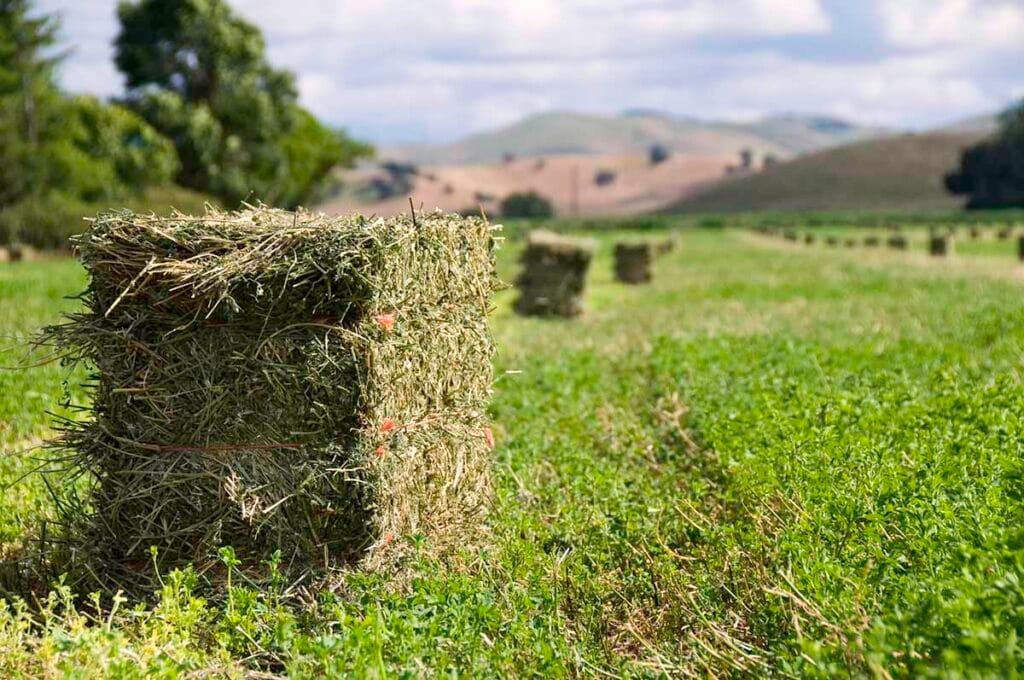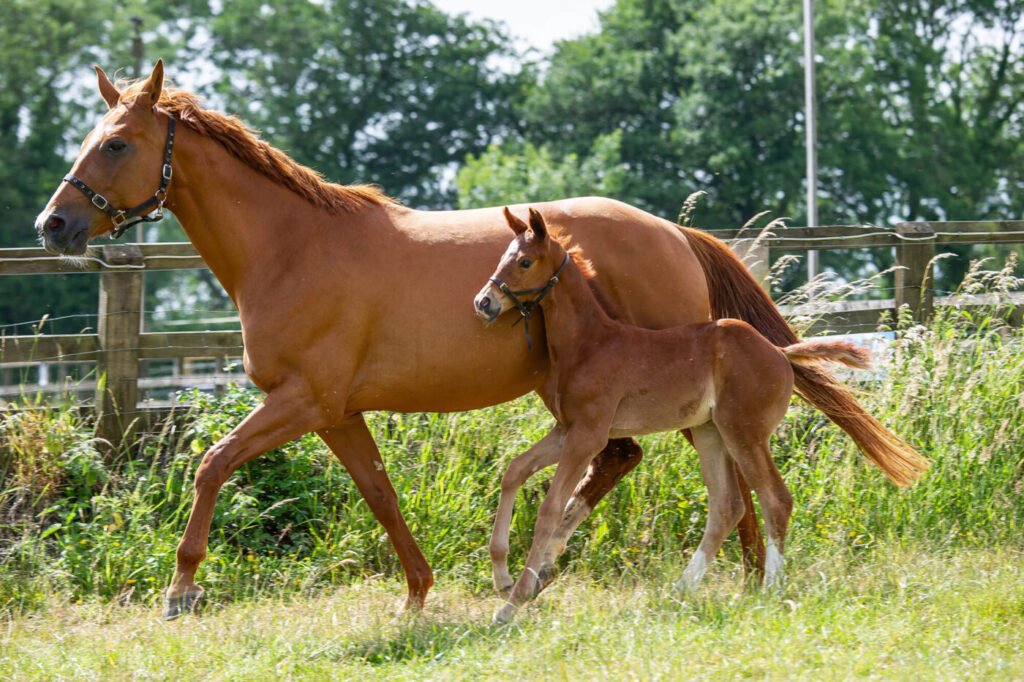Feeding horses is an essential part of their care, and choosing the right type of hay is crucial for their health and well-being.
Alfalfa hay, a popular choice for horses, is rich in nutrients and protein. However, feeding alfalfa must be done with caution, as it may not be suitable for all horses. In this guide, we’ll explore the benefits of alfalfa for horses, the potential risks, and how to feed it safely.
What is Alfalfa Hay?
Alfalfa (Medicago sativa) is a legume hay that is highly nutritious and widely used in equine nutrition. It is often considered a premium hay because of its high protein content, calcium levels, and digestible fiber. Alfalfa is usually grown in the form of hay and is available in different types, such as:
- Grass hay (timothy, orchard, meadow, etc.) – Lower in protein and calcium.
- Alfalfa hay – Higher in protein, energy, and calcium, making it more suitable for certain horses with specific nutritional needs.
While alfalfa hay is popular in feeding young, pregnant, or working horses, its rich composition may not always be suitable for every horse.
Benefits of Alfalfa for Horses
- Rich in Protein and Fiber
Alfalfa is packed with digestible fiber and high-quality protein, making it an excellent choice for growing horses, pregnant or lactating mares, and hard-working horses that require higher energy and protein. - Calcium-Rich
Alfalfa contains a much higher amount of calcium compared to other hays, which is beneficial for growing foals and lactating mares that need extra calcium for bone development and milk production. - Helps in Muscle Development
Due to its higher protein levels, alfalfa supports muscle growth and repair, which can be helpful for horses involved in intense physical activity or training. - Palatable and Digestible
Many horses find alfalfa hay highly palatable. Its fragrance and texture make it an appealing choice for horses with picky appetites.
Risks of Feeding Alfalfa Hay

While alfalfa hay has many benefits, it’s important to understand the potential risks associated with its feeding. Here are some considerations:
- Too Much Protein
Horses that are not growing, pregnant, lactating, or working hard may not need the high protein content of alfalfa. Feeding alfalfa to mature, inactive, or senior horses can lead to obesity or kidney strain over time, especially when fed in excess. - Excessive Calcium
The high calcium content in alfalfa can be problematic for certain horses. If fed in excess, it can cause an imbalance with phosphorus, potentially leading to issues like kidney stones or bone development problems, especially in adult horses not needing high calcium. - Excessive Calcium
Horses with certain medical conditions, such as laminitis or metabolic disorders, may not tolerate alfalfa as well. Alfalfa’s rich nutrient profile might exacerbate their condition, leading to digestive upset or metabolic imbalance. - Not Suitable for All Horses
Older horses, ponies, or horses with metabolic problems (like Cushing’s disease or insulin resistance) should avoid high-calcium, high-protein hays like alfalfa. It’s always best to consult with a veterinarian before introducing alfalfa to these horses.




